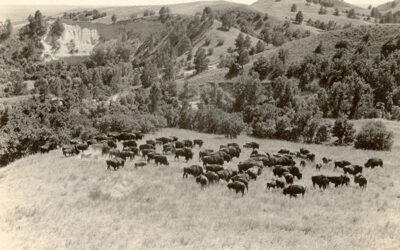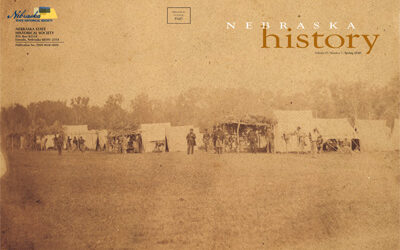A daily newspaper’s Sunday edition once covered local social news and trends in more detail than was possible during the week. The Sunday Morning Call (Lincoln), on May 4, 1890, asked why some local girls were not being escorted to dances and other gatherings. “Those Selfish Young Men, A New Tale of Woe, as Sung by the Lincoln Ladies” discussed the problem.
“The editress of this department of THE SUNDAY MORNING CALL stepped in the other evening to visit with a leading society young lady, and after the usual compliments of the season were exchanged she poured out a tale of woe that should move hearts of the stubbornest of Lincoln’s many chronic bachelors. She bemoaned and bewailed the fact that so many gentlemen went to the theaters, the parties, the balls and other social amusements and entertainments without a lady. This young lady is not often left behind, herself, but she was sympathizing with her less fortunate sisters.
“The very fact that the young men of Lincoln are so often seen alone at the theater and dances is a subject of much comment. Several years ago, the rule was made and observed too, that no gentlemen attending the Pleasant Hour [social club] parties should go unaccompanied by a lady. Lately this rule has not been observed, and gentlemen often go alone to the club parties, and go in and fill their [dance] programmes with the names of ladies brought there by others. This, of course, throws the gentleman who brought a lady, out of a dance and he is obliged to stand back, and see this young man of nerve dancing with the very one with whom he is entitled to dance.
“It would not be unreasonable to suppose that the time might come when the habit will extend, and some evening, all the gentlemen go alone, and not a lady in attendance. Imagine a dance composed only of gentlemen. There may be more of an excuse for a gentleman going alone to the theatre than to a dance. There he robs no one of a right.”
The article writer concluded that “the ladies are just a little to blame, for a good many of them expect too much. It is too much to expect that a gentleman furnish a carriage, flowers, etc., and ask a lady very often to go. There are not many young men able to do all this and for a lady to expect it is absurd. The distance is not very great from any part of town to the opera house, and the different lines of [street railway] cars are convenient to almost all sections of the city.”



